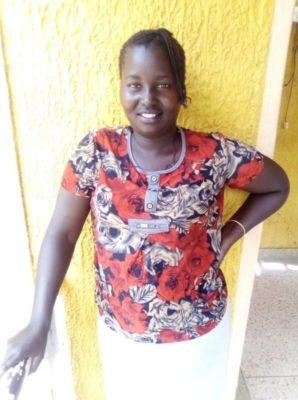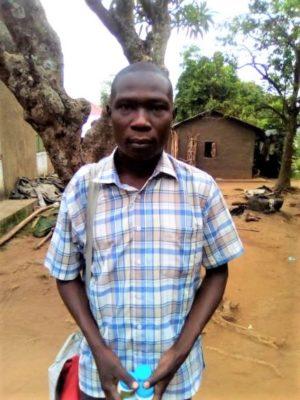July 3, 2020
Mobile career boost – what we learned from the Bidi Bidi refugee camp
Did you know that 375 million African youths will become of working-age within the next 15 years according to the United Nations? Simultaneously, the size of the working-age population in Africa will reach 1.1 billion by 2035, surpassing that of China and India. By 2050, up to one third of all young people in the world will be living in sub-Saharan Africa.
This group of people is very diverse: some have been highly educated, have language skills and work experience from the formal job market, while the others have never had a chance to pursue studies beyond the basic education. What many of these people have in common is that they do not know exactly what kind of work their skills would be a good fit for or how they should go about developing the critical competencies demanded by the job market. Nor do they know how to find jobs and a path in life that best suits them.
Reaching the millions
It is obvious that we cannot reach all these millions of people through classroom-based education. This would easily cost tens or even hundreds of billions of euros. When it comes to professional skills-based learning, a digital or even a partly digital (i.e. blended) solution is the only scalable and financially plausible option in this situation. This may sound like a pipedream, but is actually a rather logical continuum to the digital revolution that has taken place in Africa.
500 million working-age Africans – approximately 65 per cent of the working-age population – use a mobile phone. Last year, 239 million of them had access to an internet connection, and the number of internet users in Africa will reach +500 million people by 2025. In many African countries, people are used to accessing services via mobile phone and have been doing so even before the people in many rich countries. For example, mobile money and smartphone-operated money saving and transfer services have long been commonplace in sub-Saharan African countries.

Fuzu helped Joyce Kasara, 37, a resident of the Bidi Bidi refugee camp, in job-hunting.
Support for those most in need
Most job market operators have also moved online. Fuzu, whose name comes from the Kiswahili word meaning ‘to succeed, to become competent’, has taken this idea one step further: it is a smartphone-based career development platform that helps job-seekers identify and develop their skills. Employers can use Fuzu to target their vacant jobs at best suited talent and find the best candidates efficiently thanks to the candidate testing and AI-based analysis. To date, the service has had 8.5 million users, the majority of whom are in Kenya and Uganda.
To understand how Fuzu can better support people at the base of the economic pyramid, having trouble entering the formal job market, we have initiated co-operation with various partners in building employment and training projects across Eastern Africa. If we can make the service work for individuals under highly challenging circumstances, it will most likely work for others as well. While enabling and supporting these initiatives, we are accelerating the digitalisation among users that would have otherwise been difficult to reach.
In all honesty, I have to admit that I have always done my best to avoid building a business around project-based revenue. Projects are not a scalable or sustainable form of business, particularly for an online platform. Completed projects are often let to run down, unless there has been a clear intention from the start to build a business/sustainability model that keeps the platform going and provides continuous income for concepts and the service itself to evolve.
Our own projects are always built to ensure that the free core service remains available to the end users even after the project has been completed. A project attracts new users to our basic service, and we can guarantee that the financier will be happy with the long-term effects and impact.

Ajule Peter, 37, found a job as a salesperson.
Importance of personal support under challenging circumstances
Our third project is about to begin. In 2018, we started a pilot funded by the International Labour Organisation (ILO) in Mogadishu, Somalia, a project led by our partner Africa Working. Next, we participated in the Re-Hope project at the Bidi Bidi refugee camp in Uganda. The project began in 2019 and was coordinated by the American Mercy Corps and funded by the Department for International Development (DFID) of the UK. Bidi Bidi is one of the largest refugee camps in the world: 270,000 refugees mainly from South Sudan and the Democratic Republic of the Congo live there.
We offered 3,200 refugees the opportunity to assess and develop their skills on Fuzu and helped them to connect with employers in the vicinity of the camp. We also offered the participants customised educational content that was produced by our partner. 1,000 participants were offered a job and, by the end of the project, approximately 40 had been employed. The figure is not high, but the project inspired and helped us to understand the job market around refugee camps and to survey beneficiaries with limited formal education. The project also generated valuable feedback for the future. But what did we actually learn?
So far we have summed up the lessons learned into three points: First, when operating under challenging conditions, it is important that the people using online services have access to concrete assistance and a support network that helps them move outside the camp for a job, open a bank account and take care of other paper work related to accepting work. Second, the network connection for mobile phones must be functional and inexpensive enough, possibly facilitated through data subsidies.
Third, in addition, the applicants must have good enough English skills and competence to use the service on a mobile phone, a concern that can be addressed with language translations and simpler user experience. Perhaps in the future, it would be useful to receive guidance and support from non-governmental organisations and other similar operators and to co-operate with, for example, local network operators.
Support for disabled job-seekers in Kenya
This year we began a project called Innovation to Inclusion in Nairobi. The project strives to help 3,000 disabled individuals find work and to support their professional development. In addition to a web-based service, the project also involves teaching in classrooms and face-to-face training. Our implementation partners in this project are the British people with disabilities NGO Leonard Cheshire and the Kenyan authority National Council for Persons With Disabilities. The consortium receives funding from the UK AID.
We are also looking to engage employers from Nairobi and across Kenya in the project. The aim is to get the employers to broaden their own thinking and to recognise that people with disabilities have value to add to them as employees. We also want to help them understand how small improvements in accessibility, such as making it possible to access the workplace in a wheelchair, can be incredibly important to improve access to employment opportunities.
Personalised sparring for millions?
Identifying our personal strengths and weaknesses is challenging to us all. Sometimes, we also fail to realize which jobs or career paths our competence profile or personal characteristics are not a great fit for. Especially the poorest job-seekers focus, very understandably, on immediate survival and end up applying for any vacant jobs, regardless of their suitability for the work.
This is why it is important to encourage people to consider, even for a moment, how to develop and portray their competencies correctly, making it easier for employers to understand who they are and what they can offer. For example, if your job application is full of typos, it is no use sending it to one hundred employers. What if we could understand how to help these people better and more efficiently than before?
Now, this is exactly the reason why Fuzu exists and why it does not just mediate jobs but aims to be a holistic career development service instead, supporting people throughout their careers. To find employment for millions of African youths and to help them accelerate their growth, we need digital services that can be scaled for millions. Positive effects will be multiplied and young people, their families and friends as well as the entire society will benefit from this.
Jussi Hinkkanen
CEO, FUZU
Jussi Hinkkanen is the CEO of Fuzu Ltd and one of the company’s founders. Before Fuzu, he was a member of Nokia’s leadership team for India, the Middle East and Africa, based out of Johannesburg, South Africa, and Dubai, United Arab Emirates. Before Nokia, Hinkkanen lived five years in Mozambique working as an advisor to the Minister for Science, Technology and Innovation of Mozambique and for the United Nations in ICT for Development projects. Before his time in Mozambique, Hinkkanen was a manager at Konecranes Ltd. He holds a Master of Science degree in industrial engineering.
Finnfund has been funding Fuzu since 2016. Learn more: Fuzu matches workers with jobs
Learn more about Fuzu
